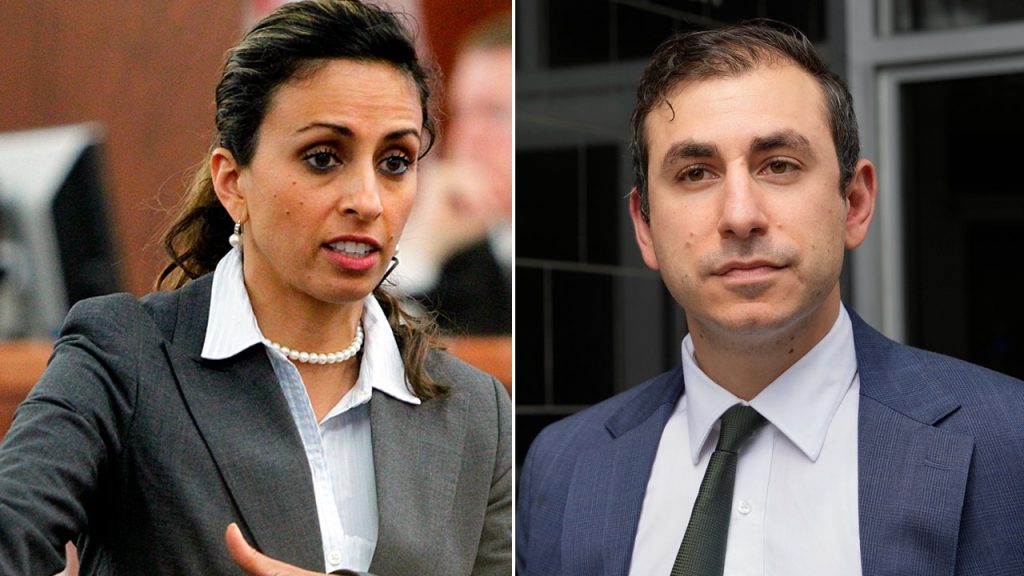The recent case involving Dr. Eithan Haim has gained national attention as it highlights potential conflicts within the Department of Justice (DOJ) regarding the prosecution of whistleblowers. Charged initially for leaking sensitive medical information about Texas Children’s Hospital’s procedures on minors regarding gender transition, the case against Dr. Haim has since faced substantial scrutiny. As the House Judiciary Committee reviews the situation, questions arise about the motivations behind the charges and the role of lead prosecutor Tina Ansari, whose connections to the Texas medical system have raised concerns about conflicts of interest.
| Article Subheadings |
|---|
| 1) Overview of Dr. Haim’s Case |
| 2) Legal and Ethical Implications |
| 3) Testimony and Congressional Hearings |
| 4) Political Reactions and Public Opinion |
| 5) Future of the Transgender Medical Procedures Debate |
Overview of Dr. Haim’s Case
Dr. Eithan Haim, a Texas pediatrician, became the focus of legal actions when he allegedly leaked confidential records related to the medical procedures performed on minors at Texas Children’s Hospital. The facilities were reportedly administering gender transition treatments, which has become a highly contentious issue in national discourse. The DOJ under the Biden administration indicted him, viewing his actions as unlawful whistleblowing. However, the prosecution faced immediate backlash due to perceived conflicts of interest surrounding lead prosecutor Tina Ansari, whose family ties were believed to be extensive in the same medical system that was under scrutiny.
Legal and Ethical Implications
The situation surrounding Dr. Haim raises numerous legal and ethical questions, particularly regarding the protection of whistleblowers in healthcare. The allegations of conflict of interest against Tina Ansari directly challenge the integrity of the legal proceedings. According to reports, Ansari was removed from the case after it was revealed that her family had significant financial connections to Texas Children’s Hospital. This revelation has amplified concerns about the DOJ’s objectivity in handling whistleblower cases, particularly in sensitive areas like pediatric medical procedures. The prosecutorial actions against Dr. Haim are now under the microscope, with critics suggesting they reflect a broader issue of government overreach.
Testimony and Congressional Hearings
Following the dismissing of the case by the Trump administration’s DOJ, the House Judiciary Committee initiated a hearing to investigate the circumstances surrounding the indictment. Dr. Haim and his defense attorney, Mark Lytle, are expected to testify about the events that led to the charges. The committee’s letter to Ansari outlines their intent to explore the implications of her involvement and the alleged conflict of interest. “Your testimony is vital for informing legislative reforms aimed at enhancing civil liberties and ensuring the DOJ does not misuse its power,” the letter states, emphasizing the critical nature of the ongoing inquiry.
Political Reactions and Public Opinion
The case has not only sparked a legal debate but has also evoked strong public opinions. Various political commentators and public figures have weighed in on the situation, emphasizing the broader implications it holds for whistleblowers. There are growing fears that prosecuting Dr. Haim could deter future whistleblowers from coming forward, particularly in cases involving sensitive healthcare decisions. Notably, former NFL star Brett Favre criticized the ongoing political atmosphere that he claims stifles open dialogue and penalizes individuals for expressing dissenting views on controversial issues like gender transition medical procedures.
Future of the Transgender Medical Procedures Debate
As the fallout from Dr. Haim’s case continues, the debate surrounding transgender medical procedures for minors is likely to intensify. Advocates for both sides of the discussion are poised to utilize the developments in this case to support their arguments. Proponents of stricter regulations argue that this case emphasizes the potential risks associated with youth gender transition treatments. Conversely, opponents argue that the prosecution of Dr. Haim is an attempt to stifle necessary medical conversations and advance a political agenda aimed at silencing dissenting voices within the medical community. The broader implications of this case could shape future legislative frameworks regarding healthcare procedures involving minors.
| No. | Key Points |
|---|---|
| 1 | Dr. Eithan Haim was indicted for leaking information about transgender medical procedures on minors. |
| 2 | Prosecutor Tina Ansari was removed from the case due to potential conflict of interest linked to her family’s ties to the medical system. |
| 3 | Congressional hearings are set to investigate the case and the implications of the prosecution’s conduct. |
| 4 | Responses from public figures highlight the political dimensions and concerns over whistleblower protections. |
| 5 | The case could significantly influence future policies surrounding youth gender transition medical procedures. |
Summary
The situation surrounding Dr. Eithan Haim encapsulates the growing tensions between governmental oversight and healthcare practices involving minors. The dismissal of charges following significant conflicts of interest within the DOJ raises questions about the motivations behind such prosecutions and reflects a deeper societal debate regarding the treatment of gender identity issues within pediatric healthcare. The continuing investigations and discussions in Congress could lead to pivotal changes in both legal precedent and healthcare policies.
Frequently Asked Questions
Question: What were Dr. Haim’s accusations?
Dr. Eithan Haim was charged with leaking confidential medical records that detailed transgender medical procedures performed on minors at Texas Children’s Hospital.
Question: Why was the case against Dr. Haim dismissed?
The case was dismissed by the Trump administration’s DOJ due to concerns surrounding the conflict of interest related to the lead prosecutor’s family ties to the Texas medical system.
Question: What are the implications of this case for whistleblowers?
This case raises significant concerns about the protections afforded to whistleblowers, especially in sensitive medical contexts, and may influence future legislative efforts to safeguard those who expose wrongdoing.


